Social Democrats TD and agriculture spokesperson Holly Cairns wants “a hell of a lot more” set aside for eco schemes in the next Common Agricultural Policy (CAP).
It’s her immediate response to the first question in a wide-ranging interview on farm issues.
She means more than the maximum 30% that was being pushed for by the European Parliament, which led to the ultimate breakdown of CAP talks a month earlier.
We’re sitting in the TD’s home in Turk Head on the organic beef and seed farm she runs with her mother – it’s nestled in rugged terrain, and I’m wondering if the sea air has affected her, as I double check my microphone to make sure that we’re on the record after her controversial comment.
One of six vocal Social Democrat TDs in the Dáil, Cairns cut her teeth as a county councillor for Cork, where she turned down an offer to be mayor for a year by Fine Gael in exchange for her support and is now a first-time TD for Cork South-West.
It’s clear she’s not in politics to plámás farmers.
Throughout the interview, she does not mince her words and shoots straight from the hip.
She’s open in pushing for 100% convergence and questions why Minister for Agriculture Charlie McConalogue has changed his position to just 75% convergence.
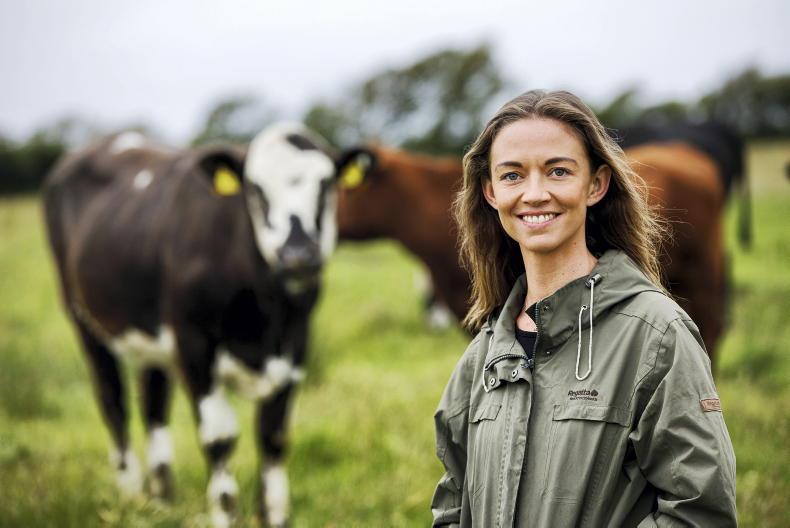
TD Holly Cairns at her home farm at Ardagh on Turk Head peninsula, Co Cork. \Donal O'Leary
“I’d be in favour of [100%] convergence and it’s really confusing that the Minister was saying exactly the same thing a year ago, and has now changed his stance,” she says.
I counter that, as an organic farmer, she’s in a privileged position in terms of eligibility for eco schemes.
“The only part of the farm we get paid towards is where we have livestock,” Cairns says, explaining that they are docked payments for any land growing seed.
The seed side of the farm is what drives the farm income, particularly with the gardening boom during the pandemic.
The reality is that the current model has decimated lots of Irish farms like that
It was an idea that came about after her mother realised she couldn’t expand their dairy outfit and sold their quota in 1999.
“The reality is that the current model has decimated lots of Irish farms like that.
"You know, to think that I was raised on the income of between 12 and 16 dairy cows, that type of farm is decimated.
"We went into beef and now that isn’t viable either, so current policy doesn’t really favour most farms in my opinion,” Holly says.
“You hear the words 'just transition' thrown around, it’s almost like sustainability is becoming meaningless. I’d like to see the changes we have to make done fairly. I don’t want a cliff edge for any farm, I know what that feels like.
“It’s become like, if you’re not a big dairy farmer, you’re not a ‘real farmer’.
Big impact
“Lobby groups have a really big impact on this and they have a really big impact on the narrative.
"If you follow the money, it’s not going back to the farmer. So, defending this current policy doesn’t really actually defend the farmer.”
I ask what she would do if she were to wake up one morning with a beautiful dairy farm in west Cork with a nitrates derogation, and her immediate response is that the derogation would have to go, not just for this hypothetical farm, but for all farms across the country.
Yet Cairns insists that this does not make her anti-farmer or anti-dairy – she values the dairy sector and wants to continue to see it thrive.
I think sometimes it’s important for politicians to say what needs to be said, instead of what everybody wants to hear
“I know people don’t like to hear that, but I think sometimes it’s important for politicians to say what needs to be said, instead of what everybody wants to hear,” she states simply, insisting that farmers get more for milk and that there needs to be a fairer distribution of profits from management in co-ops to the farmer.
Her opinions on the Climate Bill are equally as strong.
“I know this is considered political suicide, but, ultimately, I do believe that we have to reduce the national herd.
"I don’t think farmers get up in the morning and say: ‘I’d like to release as many emissions as I can today.’
“We produce food and sell it for way less than what it actually costs to produce it.
“Beef farms tend to be traditionally lower stocked, so I don’t know why it’s always talk of reducing the beef herd.”
Farmers should be paid more
She says she doesn’t think beef or dairy farmers are “dying to put more cattle” on land and increase emissions, but they should be paid more per litre of milk and per kilo of beef.
“We need to start accepting the reality of where we’re at and making really fair and sensible decisions in relation to how we go forward to protect this very important sector for the country.”
One concrete thing I would immediately do is reintroduce the ban on below-cost selling
At this stage, I ask Holly how she would go about doing that if she was Minister for Agriculture.
“One concrete thing I would immediately do is reintroduce the ban on below-cost selling to protect primary producers and smaller retailers, and there was a law in place for that.
"It was actually repealed in 2005 by the then Minister for Enterprise Michéal Martin,” she says.
What might surprise is that the TD says she would not ban live exports, but insists on increased work and research going into the sexed semen sector.
As an organic farmer with a masters in organic horticulture, she also doesn’t hold back on her dismay over the current state of the sector.
Concerns for young farmers
But at the same time, she’s keen to point out that organic farming was just farming “before we introduced chemical inputs” and that it’s unwise to rely on chemical fertilisers, as they are a finite resource and will run out.
She ends the interview by expressing her concerns for young farmers from smaller farms looking to stay in the sector.
“If you have three or four beef farms sold up to another big farm, those three or four jobs are gone.”
She says this will have a knock-on effect on the rural community, including school numbers.
“Our whole approach to agriculture needs to change for it to be a desirable occupation for young people and a realistic one.”
Social Democrats TD and agriculture spokesperson Holly Cairns wants “a hell of a lot more” set aside for eco schemes in the next Common Agricultural Policy (CAP).
It’s her immediate response to the first question in a wide-ranging interview on farm issues.
She means more than the maximum 30% that was being pushed for by the European Parliament, which led to the ultimate breakdown of CAP talks a month earlier.
We’re sitting in the TD’s home in Turk Head on the organic beef and seed farm she runs with her mother – it’s nestled in rugged terrain, and I’m wondering if the sea air has affected her, as I double check my microphone to make sure that we’re on the record after her controversial comment.
One of six vocal Social Democrat TDs in the Dáil, Cairns cut her teeth as a county councillor for Cork, where she turned down an offer to be mayor for a year by Fine Gael in exchange for her support and is now a first-time TD for Cork South-West.
It’s clear she’s not in politics to plámás farmers.
Throughout the interview, she does not mince her words and shoots straight from the hip.
She’s open in pushing for 100% convergence and questions why Minister for Agriculture Charlie McConalogue has changed his position to just 75% convergence.

TD Holly Cairns at her home farm at Ardagh on Turk Head peninsula, Co Cork. \Donal O'Leary
“I’d be in favour of [100%] convergence and it’s really confusing that the Minister was saying exactly the same thing a year ago, and has now changed his stance,” she says.
I counter that, as an organic farmer, she’s in a privileged position in terms of eligibility for eco schemes.
“The only part of the farm we get paid towards is where we have livestock,” Cairns says, explaining that they are docked payments for any land growing seed.
The seed side of the farm is what drives the farm income, particularly with the gardening boom during the pandemic.
The reality is that the current model has decimated lots of Irish farms like that
It was an idea that came about after her mother realised she couldn’t expand their dairy outfit and sold their quota in 1999.
“The reality is that the current model has decimated lots of Irish farms like that.
"You know, to think that I was raised on the income of between 12 and 16 dairy cows, that type of farm is decimated.
"We went into beef and now that isn’t viable either, so current policy doesn’t really favour most farms in my opinion,” Holly says.
“You hear the words 'just transition' thrown around, it’s almost like sustainability is becoming meaningless. I’d like to see the changes we have to make done fairly. I don’t want a cliff edge for any farm, I know what that feels like.
“It’s become like, if you’re not a big dairy farmer, you’re not a ‘real farmer’.
Big impact
“Lobby groups have a really big impact on this and they have a really big impact on the narrative.
"If you follow the money, it’s not going back to the farmer. So, defending this current policy doesn’t really actually defend the farmer.”
I ask what she would do if she were to wake up one morning with a beautiful dairy farm in west Cork with a nitrates derogation, and her immediate response is that the derogation would have to go, not just for this hypothetical farm, but for all farms across the country.
Yet Cairns insists that this does not make her anti-farmer or anti-dairy – she values the dairy sector and wants to continue to see it thrive.
I think sometimes it’s important for politicians to say what needs to be said, instead of what everybody wants to hear
“I know people don’t like to hear that, but I think sometimes it’s important for politicians to say what needs to be said, instead of what everybody wants to hear,” she states simply, insisting that farmers get more for milk and that there needs to be a fairer distribution of profits from management in co-ops to the farmer.
Her opinions on the Climate Bill are equally as strong.
“I know this is considered political suicide, but, ultimately, I do believe that we have to reduce the national herd.
"I don’t think farmers get up in the morning and say: ‘I’d like to release as many emissions as I can today.’
“We produce food and sell it for way less than what it actually costs to produce it.
“Beef farms tend to be traditionally lower stocked, so I don’t know why it’s always talk of reducing the beef herd.”
Farmers should be paid more
She says she doesn’t think beef or dairy farmers are “dying to put more cattle” on land and increase emissions, but they should be paid more per litre of milk and per kilo of beef.
“We need to start accepting the reality of where we’re at and making really fair and sensible decisions in relation to how we go forward to protect this very important sector for the country.”
One concrete thing I would immediately do is reintroduce the ban on below-cost selling
At this stage, I ask Holly how she would go about doing that if she was Minister for Agriculture.
“One concrete thing I would immediately do is reintroduce the ban on below-cost selling to protect primary producers and smaller retailers, and there was a law in place for that.
"It was actually repealed in 2005 by the then Minister for Enterprise Michéal Martin,” she says.
What might surprise is that the TD says she would not ban live exports, but insists on increased work and research going into the sexed semen sector.
As an organic farmer with a masters in organic horticulture, she also doesn’t hold back on her dismay over the current state of the sector.
Concerns for young farmers
But at the same time, she’s keen to point out that organic farming was just farming “before we introduced chemical inputs” and that it’s unwise to rely on chemical fertilisers, as they are a finite resource and will run out.
She ends the interview by expressing her concerns for young farmers from smaller farms looking to stay in the sector.
“If you have three or four beef farms sold up to another big farm, those three or four jobs are gone.”
She says this will have a knock-on effect on the rural community, including school numbers.
“Our whole approach to agriculture needs to change for it to be a desirable occupation for young people and a realistic one.”




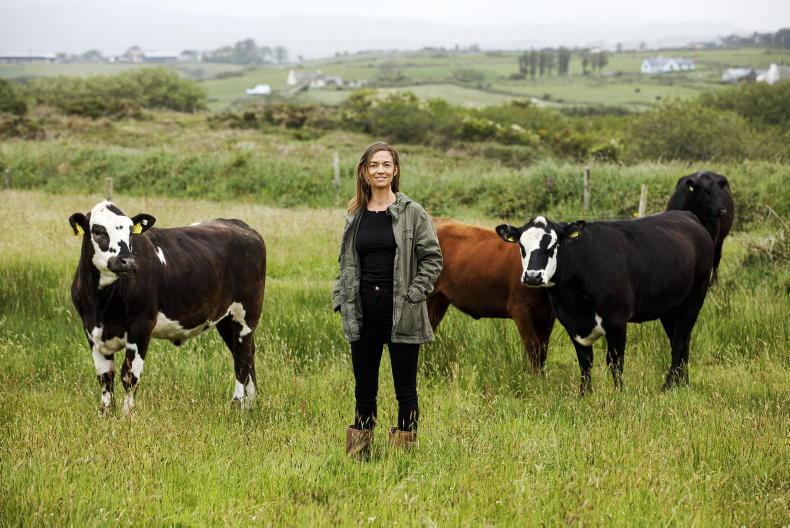

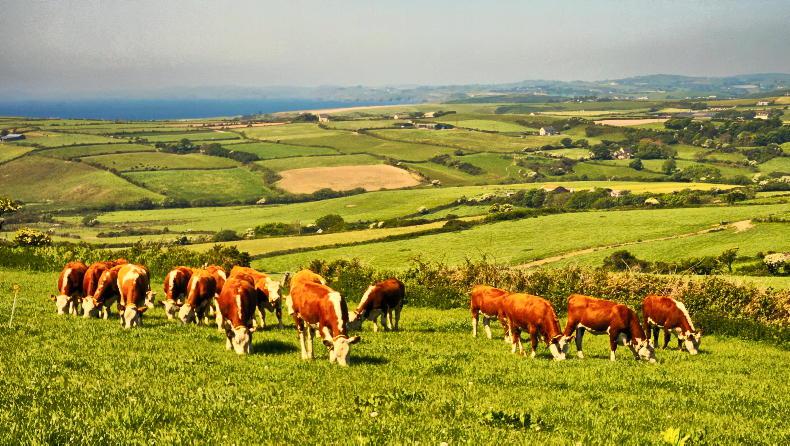


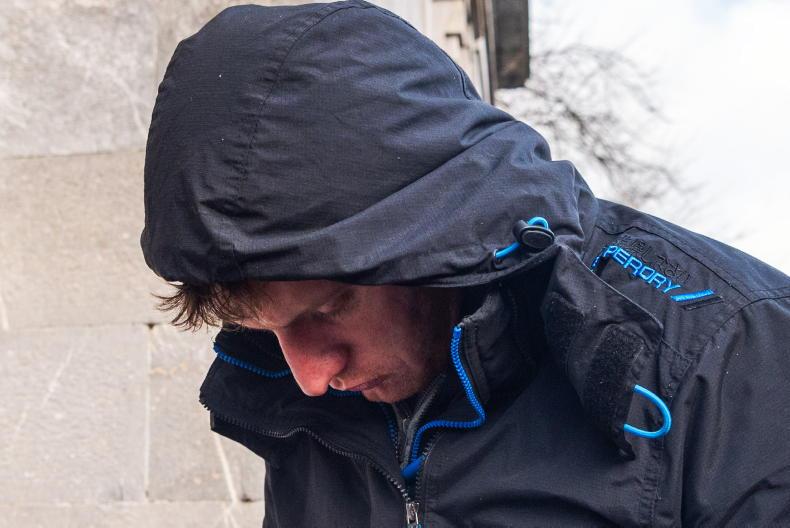
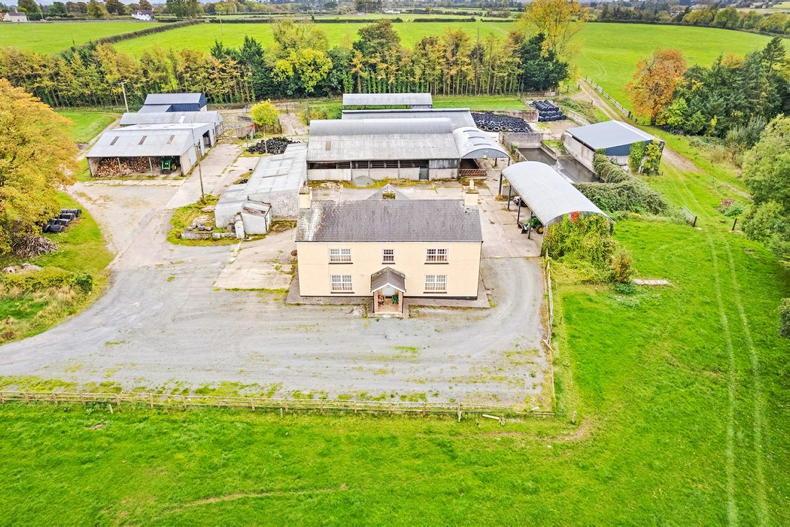
SHARING OPTIONS